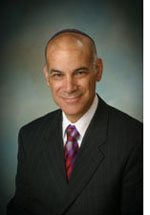|
By Rabbi Leonard Rosenthal
 SAN DIEGO—One of the less laudatory traditions of our political system is that of elected officials "rewarding" their friends and supporters with appointments to positions such as ambassador, judge, and other offices. While the appointees may be well qualified, they are not always the most qualified people for that position. SAN DIEGO—One of the less laudatory traditions of our political system is that of elected officials "rewarding" their friends and supporters with appointments to positions such as ambassador, judge, and other offices. While the appointees may be well qualified, they are not always the most qualified people for that position.
In parashat Devarim Moses tells the Israelites that he instructed those he appointed as judges: "You shall not be partial in judgment: hear out low and high alike. Fear no man, for judgment is God's..." (Deut. 1:17)
From these words Midrash teaches that the words: "You shall not be partial in judgment" even applies to those who appoint judges. Their personal feelings should be left out of the process. Those who appoint judges should not say: "This
Go to the top of right column
|
|
person is nice, so I will make them a judge" or "That person is a hero, so I will make them a judge" or "That person lent me money, so I will make them a judge" or "That person can speak many languages, so I will make them a judge" - not because they may be evil people, but because they are not experts in the Torah's laws.
So what might we surmise the opinion of the Midrash to be regarding President Obama nominating Judge Sonia Sotomayor to the U.S. Supreme Court and the recent Senate confirmation hearings?
I think it is safe to say that Midrash would suggest that those who are appointed to the highest court of our country should not have overt political or social biases, but more important than anything else should be their knowledge of and willingness to apply the law.
This should be the criterion upon which all our judicial nominees and appointees should be judged.
|
|

